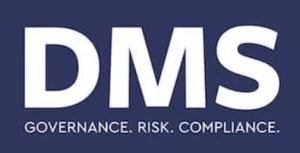"Rollin down the street, smokin indo, sippin on gin and
juice/ Laid back (with my mind on my money and my money on my
mind)." — Snoop Doggy Dogg. Nov. 23, 1993.
Like Snoop Dogg, the vast majority of investment managers,
directors of hedge funds and private equity funds, plus their
service providers and counterparties, including administrators,
banks, custodians, prime brokers and other financial institutions,
whether foreign (i.e., non-U.S.) or U.S., must soon start sipping
on gin and juice before they can be laid back when thinking about
their money.
This potent cocktail is the perfect metaphor for the powerful
combination of the Global Intermediary Identification Number mixed
with the tremendous power or "juice" of the Internal Revenue Service, spawned by the
Foreign Account Tax Compliance Act. Like the cocktail, it will
deliver more than a few headaches, but this time the hangover will
not go away.
The IRS will issue a GIIN on June 2, 2014, to each foreign
financial institution (FFI) that registers on the IRS FFI
registration portal by April 25, 2014. The GIIN is foolproof
commercial assurance against disruption in the FFI's
counterparty relationships.
Withholding agents will require the GIIN to ensure the FFI is not
subject to Foreign Account Tax Compliance Act withholding. It is
prudent to obtain the GIIN before FATCA "goes live,"
since the actions of withholding agents are beyond the FFI's
control.
We understand that withholding agents, such as prime brokers and
other fund counterparties, may insist on FFIs producing their GIIN
on July 1, 2014, to avoid any possibility of them being held liable
to the IRS for FATCA withholding tax on U.S. source payments to
nonparticipating financial institutions (NPFIs). Unlike Snoop Dogg,
withholding agents are notorious for being conservative in
protecting their interests.
Generally, the only person who can register an FFI with the IRS
is its FATCA-responsible officer (FRO). It is not practical for a
U.S. investment manager to act as "sponsoring entity" of
its Cayman Islands or British Virgin Islands funds. One reason is
that, although the U.S.-Cayman/BVI intergovernmental agreements
permit that sponsorship, the U.K.-Cayman/BVI IGAs do not. The most
practical solution is for Cayman and BVI funds (and other
investment entities) to appoint their own FRO.
The FRO must be a natural person appointed as a duly authorized
corporate officer (or director) by the FFI's board of directors
(or equivalent). That is because the FRO must be legally authorized
to register the FFI. Furthermore, the FFI's directors have
fiduciary duties to understand the scope of the FRO's
responsibilities and that the FRO has the capacity and ability to
perform his/her obligations.
The FRO is mandatory for any FFI required to register with the
IRS and obtain its own GIIN. The IRS must know the FRO's
identity. The IRS will not process the FFI's registration for
the GIIN unless it is signed by the FRO who, in doing so, must
certify the accuracy and completeness of information and agrees
that the FFI will comply with all its FATCA obligations.
The FRO must also agree that the FFI will comply with all relevant
FATCA obligations. Consequently, the FRO has a dual responsibility
to the IRS and the partner jurisdiction's competent authority;
i.e., the FRO is personally liable to the IRS1 in
addition to any liabilities imposed under the laws of any partner
jurisdiction under an IGA.
The FRO's initial responsibilities include registering the FFI
with the IRS to obtain the GIIN, overseeing the FFI's
compliance program, answering the regulators' questions and
remediating any instances of noncompliance. The FRO's formal
reporting responsibilities commence in 2015.
The IRS relies on the FRO to approve and oversee the FFI's
FATCA compliance program, being the due diligence, withholding and
reporting policies and procedures established in accordance with
the relevant intergovernmental agreement between the U.S. Treasury
and partner jurisdictions, and/or FFI agreement between the IRS and
the FFI itself. Other additional FRO responsibilities may arise
under local IGA legislation once implemented.
FROs and FFIs should be aware that the Internal Revenue Manual
states that the IRS will instigate covert (secret) investigations
long before it makes them overt so the FRO would also be the target
when and if the IRS believes that administrative or other errors
may have led to incorrect or incomplete information reporting or
resulted in other infringements of the IGA.
We recommend that investment managers and their FFIs' board of
directors give serious consideration to appointing a specialist
independent FRO. First, we are not aware of any fund administrators
willing to act as FRO. Second, there are a number of reasons why an
investment manager may find it unappealing for its employee to be
the FRO of the FFIs it manages, as explained below.
The FRO has personal strict liability for the accuracy and
completeness of the FFI's FATCA reports and also for any
failure to report on reportable accounts. The FRO would also have
fiduciary duties in the performance of his/her duties, which could
make the FRO personally liable in the event of breach of those
duties, particularly if it amounts to willful default or
fraud.
These legal risks expose the investment manager, through vicarious
liability and/or indemnification, to liability for any losses
caused to an FFI by an employee of the investment manager serving
as FRO. Investors and regulators alike may perceive that an
employee of the investment manager, who is also FRO of its funds,
has an inherent conflict of interest and could lack objectivity
where personal or employer interests conflict with those of the
FFI/regulators.
If the investment manager's employee acts as the FFI's
FRO, the investment manager would bear that expense (or at least
the opportunity cost), whereas the FFI itself would bear the cost
of any independent specialist FRO. Any FRO, who is a U.S. person,
may have additional personal tax reporting requirements to the IRS
on Form 5471 regarding his/her position as an officer or director
of a corporate FFI.
FATCA is the responsibility of the FFI and is not a core
compliance function of the investment manager. The network of IGAs
that impact each FFI are local and will become increasingly
complex; the U.K's IGAs with Cayman, the BVI and all other
overseas territories and crown dependencies "go live" on
July 1, 2014.
FATCA will grow in scope, particularly as all G20 countries,
representing 90 percent of global output and two-thirds of the
world's population, are now party to the Organisation for
Economic Co-operation and Development Multilateral Convention on
Mutual Administrative Assistance in Tax Matters.
Fund managers and their tax advisers are already recognizing the
value of offshore funds appointing a specialist independent FRO to
drink the new "GIIN and juice." Like Snoop Dogg, managers
want the freedom to be "rollin' down the street ... laid
back (with my mind on my money and my money on my
mind)."
Footnotes
1 26 U.S. Code - Internal Revenue Code — Fraud and False Statements, §7206(2); 18 U.S. Code — Crimes — Ch. 19 — Conspiracy, §371
Published in Law360, New York (January 28, 2014, 1:54 PM ET)
The content of this article is intended to provide a general guide to the subject matter. Specialist advice should be sought about your specific circumstances.


